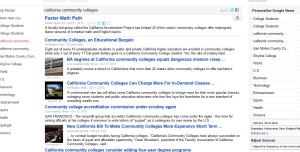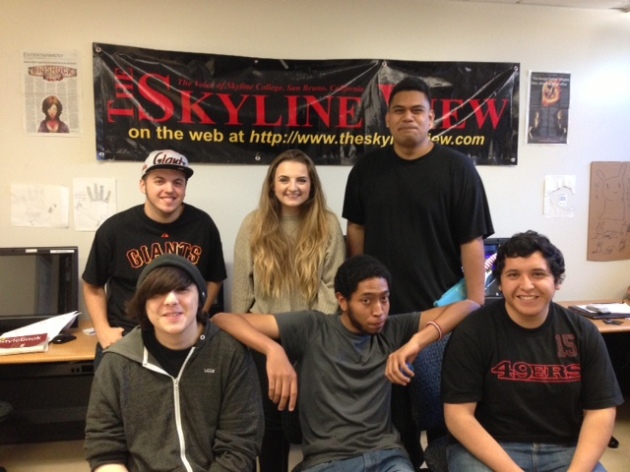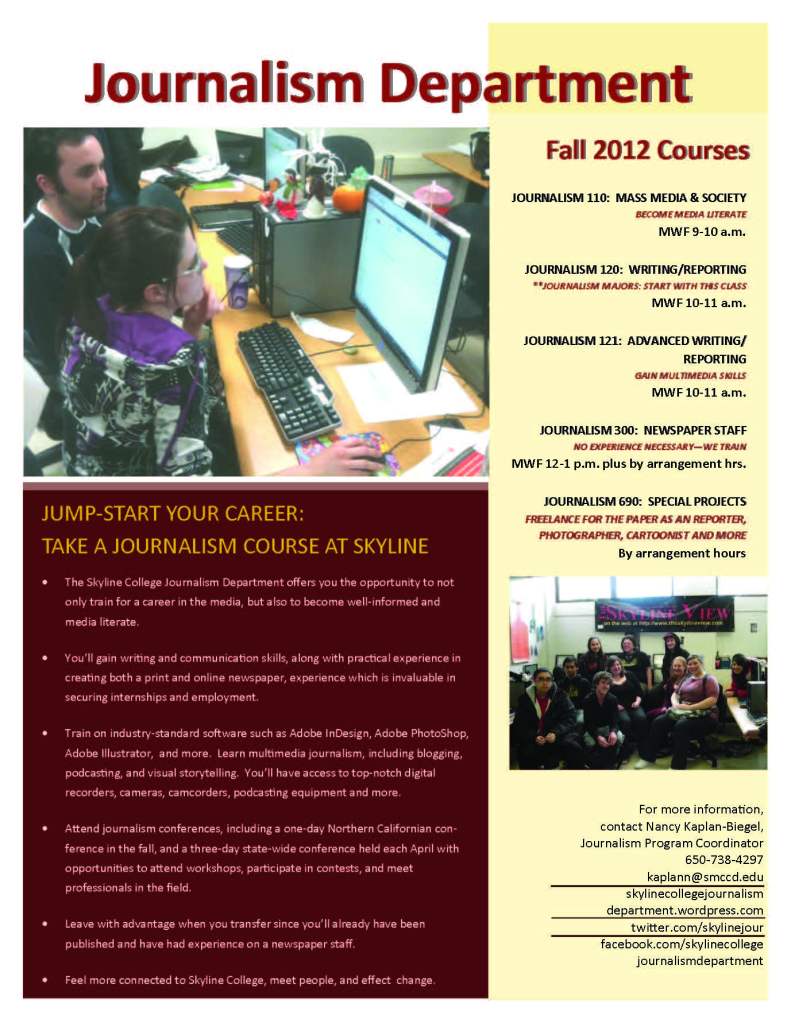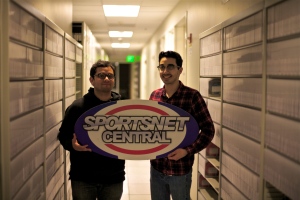Is a blog that hasn’t been updated in eight years still a blog? Let’s say yes. It’s a shame not to have updated this blog in lo-these-many-years, because many good things have happened…along with some not-so-good things like, say, a pandemic. All these said, The Skyline View has not only endured, but flourished.
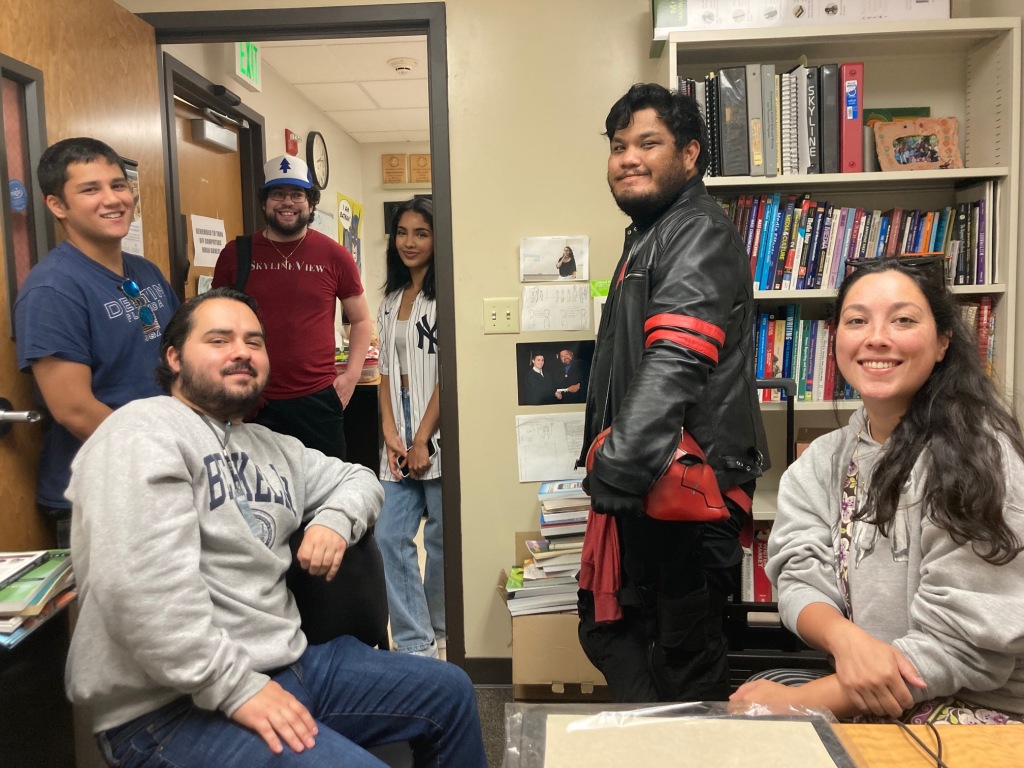
Through the last several years, including during the pandemic, The Skyline View continued to win awards from the Journalism Association of Community Colleges, the Associated Collegiate Press, and the California News Publishers Association. Our reporters have gone on to work locally and such places as Politico.
But an interesting phenomenon has happened the past couple of years. Unlike in the two decades prior where we would have a healthy mix of new and returning staff members, in the last three out of four fall semesters, we have had a completely freshman staff that has never been in a newsroom before. These tenacious students have literally walked in the room and been dubbed editors before they even knew what a lead was, let alone a “lede.” They have had to learn everything–and we mean everything–in a very short amount of time.
And that is exactly where we are right now. The students put together their first print issue of the semester, after publishing for the past eight weeks online as they learned the ropes, with nominal knowledge of InDesign, but a ton of spirt.
Still, getting the paper to the printers on this first go-round would have been an even more difficult task than it was if we had not had the help of alumni who allowed themselves to be on speed dial. In road our former EIC (now at UC Berkeley), our former opinions editor (also at Berkeley), our former sports editor (now at SFSU), and two other former editors in chief who are now in the working world. We even snared a former editor who is not officially on staff this semester (yet 😉), but is on campus. They lifted morale, but more than that, they passed on so-called institutional knowledge to our new staff and helped get them through the night. Thanks for a little help from alum, the Fall 2023 staff will be able to see their work in the physical form this week.
